Rich investors are making it possible for China’s female gamers to go pro—and they’re crushing it
When she was a teenager, Gui Lisha routinely skipped classes to play video games at cyber cafés, to the point that her father threatened sending her to rehab for internet addiction. Soon after high school, Gui snuck away from her hometown to join a professional video gaming team. Her father thought that she had fallen prey to a pyramid scheme, and flew to the city where she was in a bid to rescue her.
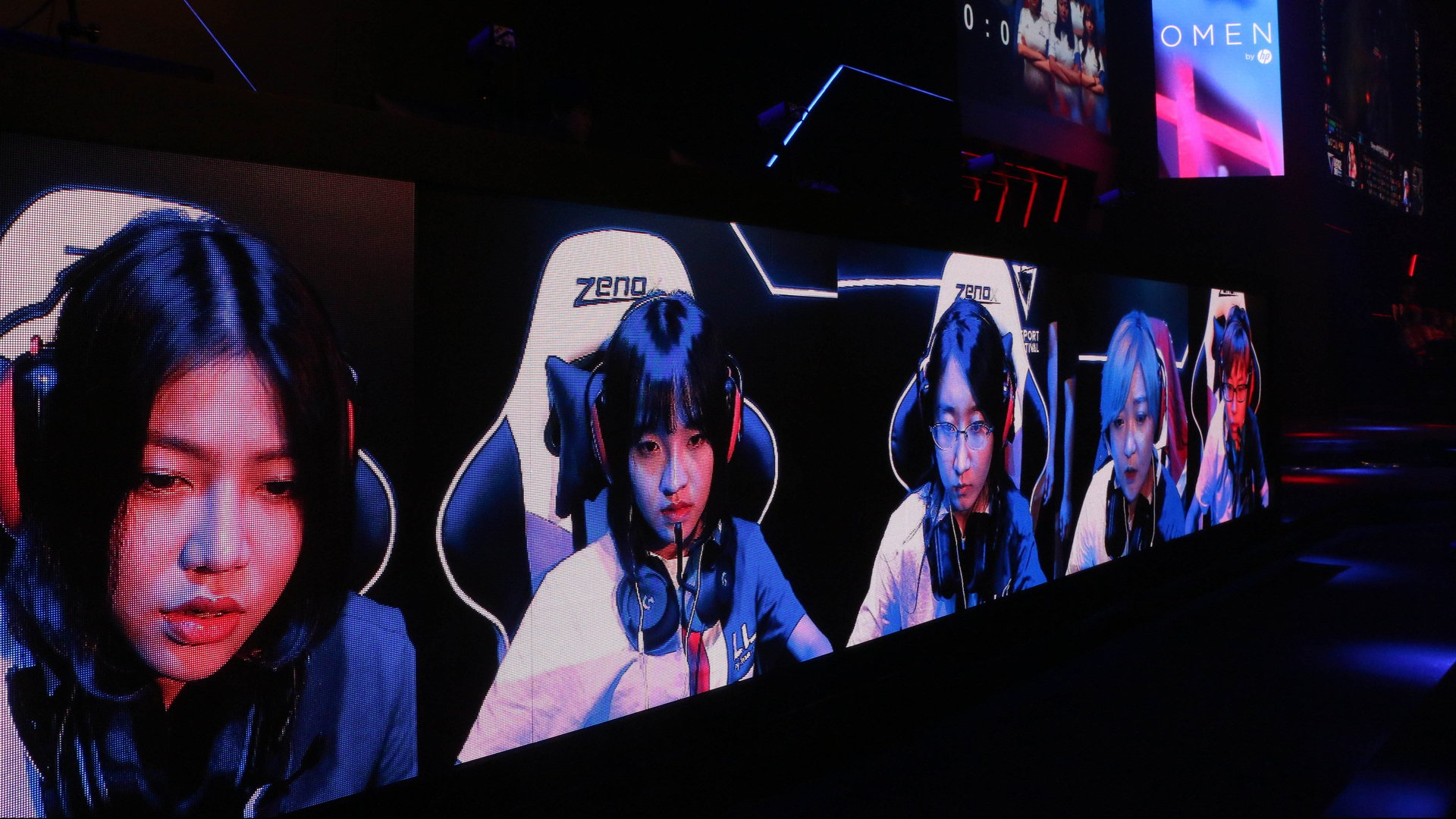

When she was a teenager, Gui Lisha routinely skipped classes to play video games at cyber cafés, to the point that her father threatened sending her to rehab for internet addiction. Soon after high school, Gui snuck away from her hometown to join a professional video gaming team. Her father thought that she had fallen prey to a pyramid scheme, and flew to the city where she was in a bid to rescue her.
Gui, now 20, is better known as “LLG Shan Chen” in China’s competitive video gaming, or e-sports, community. The “LLG” stands for her team’s name, “Love Laughing Girls,” one of China’s first all-female professional video gaming teams. In its most recent contest, LLG went head-to-head at the end of August with three other all-female teams from Europe, Taiwan, and South Korea at a League of Legends tournament in Hong Kong, for prize money worth more than $10,000, but also for recognition that female gamers should be taken as seriously as their male counterparts. ”I want to prove that I’m not inferior to guys,” said Zhang Zhou, 19, a teammate of Gui’s.
E-sports are estimated to generate nearly $700 million in revenue this year, and more than double that number by 2020. The most popular games like League of Legends, a multiplayer battle game that launched in 2009 and now has over 100 million active monthly players, draw millions of spectators. But while male gamers have been playing video games for a living since the early 2000s, racking up millions of dollars in prize money, it’s been much harder for women, despite their presence among both players and spectators.
In recent years, though, China, has seen the creation of dozens of professionally-run all-female teams, thanks to money pouring in mainly from wealthy video-game enthusiasts. Now, female pro gamers are able to earn monthly salaries of $3,000, double the amount a fresh college graduate can earn in finance in China. But their lives are grueling, involving hours of training at a computer and a daily battle against skeptics who dub female players “vases”—implying they have good looks but not good skills, said Li Xi, 25, a manager of LLG.
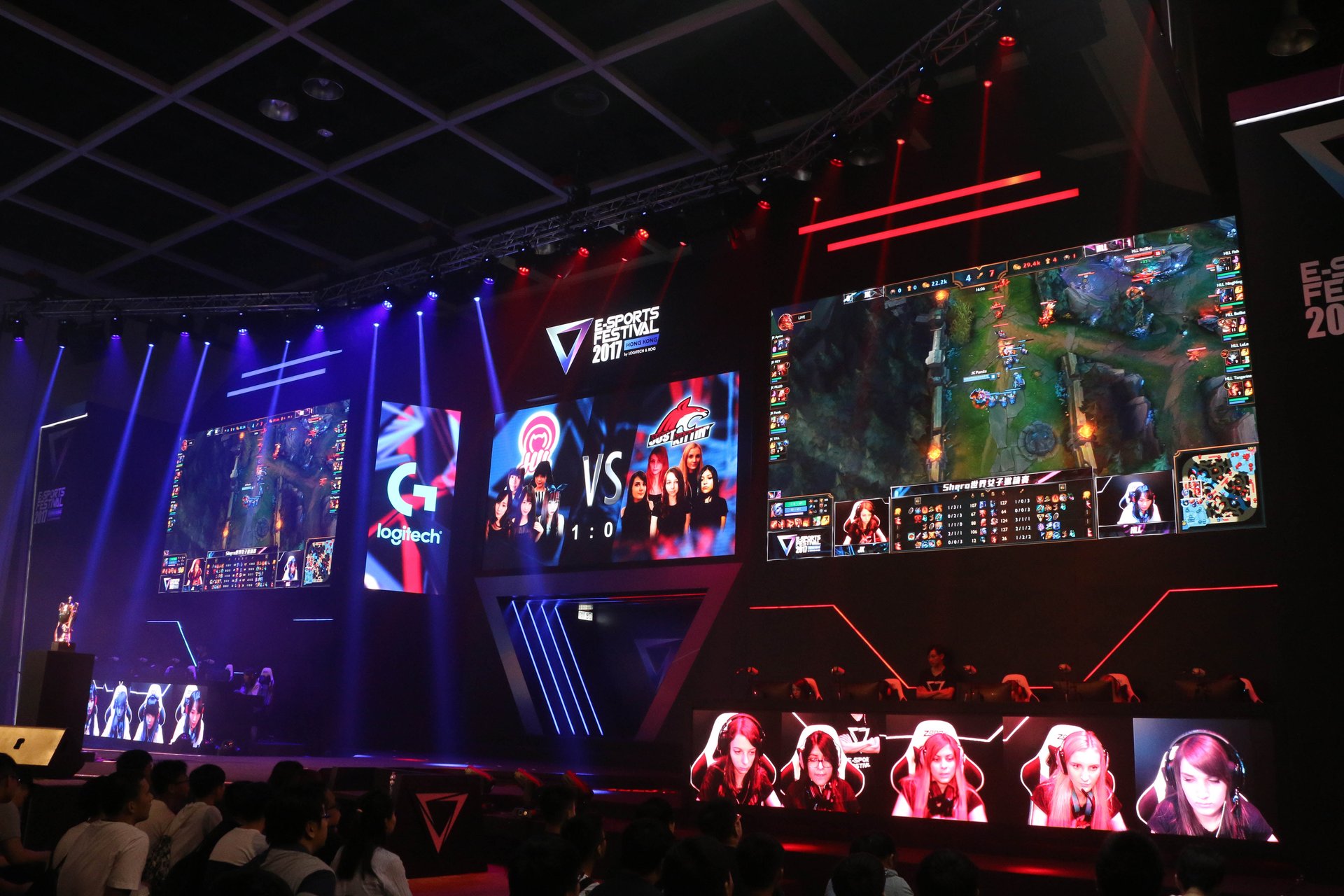
China rises, Europe struggles
The financial opportunities China’s women pro gamers are starting to enjoy simply don’t exist for most women gamers. Together, the rest of Asia only has two stable female pro teams playing League of Legends (LoL), in Hong Kong and South Korea, and female pro teams that pay salaries are even more rare in Europe.
“Pro teams only want to spend money on males. Not many people watch female teams. This is a business,” said Tony Lopez, a 22-year-old Spanish college student who pieced together the European team for the Hong Kong tournament.
Lopez recruited the team, called “Just Kittin,’” through a Facebook group for female gamers earlier this year. In the past six months, Lopez has been coaching his five team members online three times a week after they finish school or work. As part of the pre-game preparation, he also compiled a three-page document about the play styles of their opponents, as well as tips for recovering from jet lag. The five women and their coach, who live in different parts of Europe, met for the first time in real life in Hong Kong for the tournament.
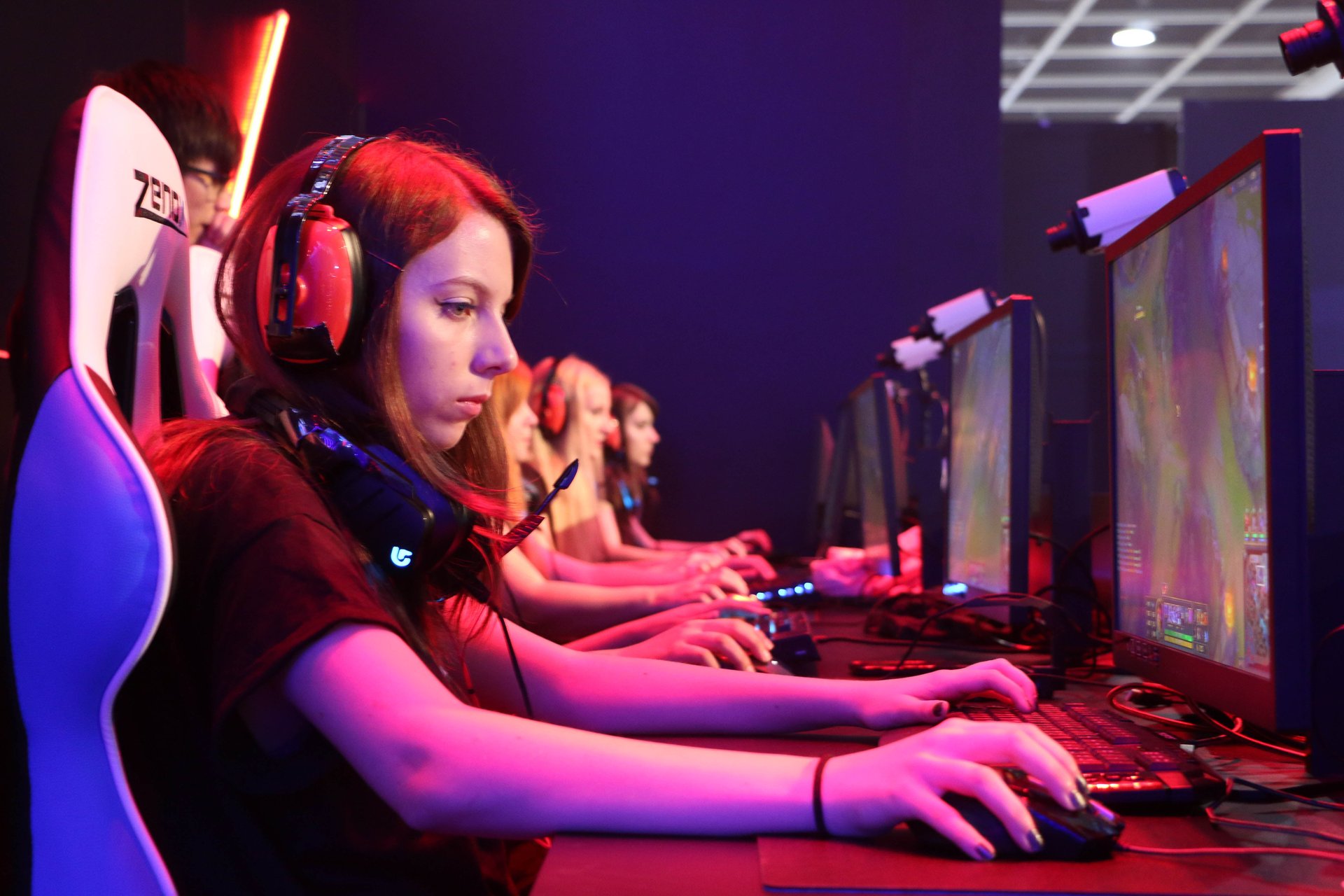
One of the players, Katarzyna Gadowska, spent 23 hours on a train and two flights to get from her hometown village in southern Poland to Hong Kong. The 21-year-old waitress recently moved out of her parents’ house because they would disrupt her games by cutting off the internet. “They just come every day to make lectures that I should quit playing because it’s so childish, and I should just focus on real life and get more mature,” Gadowska said. “I said ‘sorry, no, it’s just part of my life now.’”
Gadowska started playing LoL four years ago and soon realized that she was really good. Last year, she joined an all-female team which disbanded in less than two months because there weren’t enough tournaments for them to play in.
The venue of the Hong Kong tournament comprised a main stage with two LED screens live-broadcasting the matches. The two teams battling against each other in each match sit in rows of gaming chairs under each screen. Cameras on top of their computers capture gamers’ faces and display them on smaller screens in real time. Lopez said such a set-up would only be reserved for male gamers in Europe.
Gui and her LLG teammates are luckier than their European counterparts in terms of the support they get from their parents and employers. This April, LLG won its first championship at a LoL tournament in China attended by female teams across Asia. As a reward, the five members got a raise to an average monthly salary of 8,000 yuan ($1,200), they said.
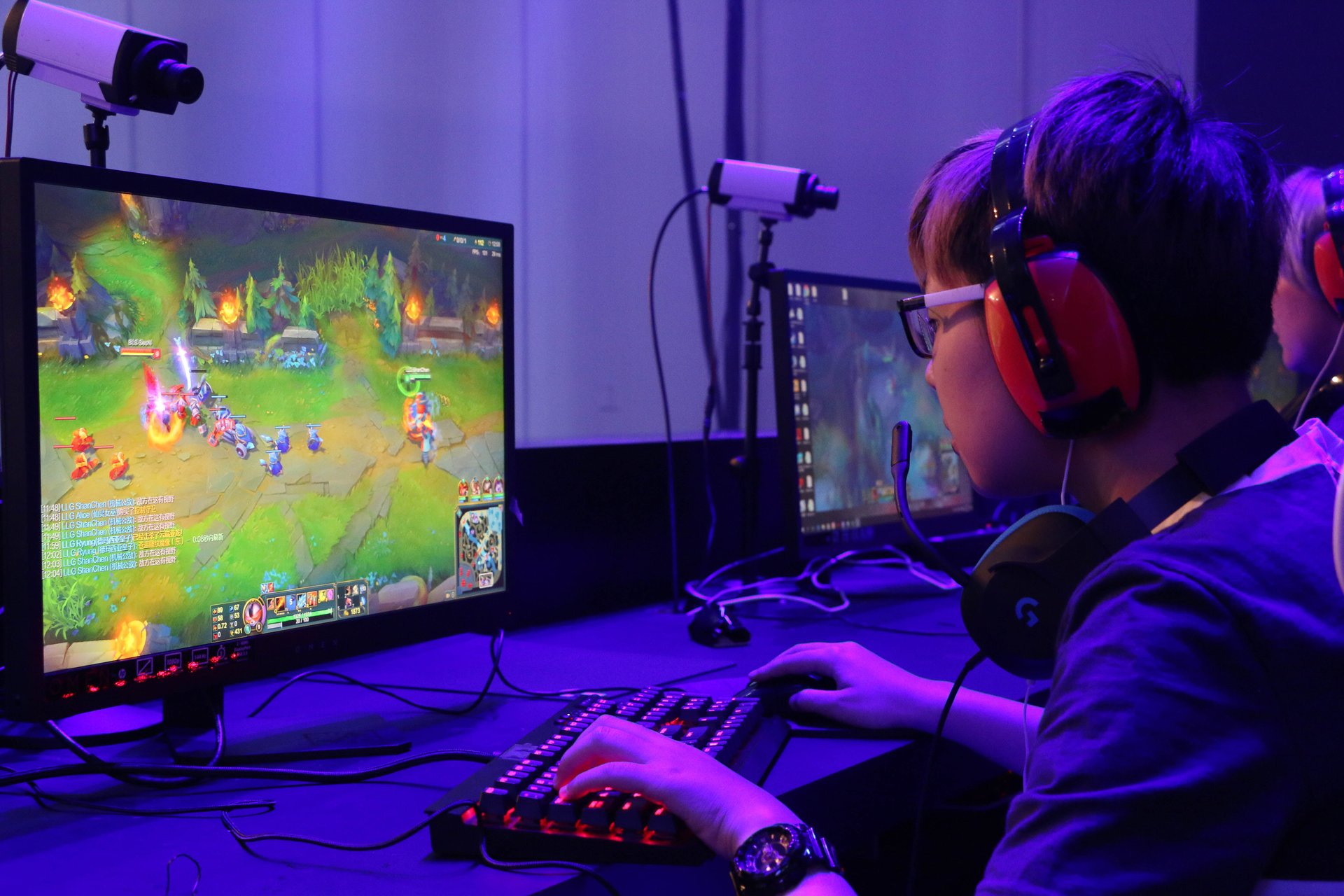
Shanghai Guangchao, the company that was set up to run LLG, founded in 2015 and now one of China’s five top female teams playing LoL, counts on financial support from Wang Jing, a female entrepreneur who owns a ship equipment manufacturing business, LLG members said. The company also operates another all-female team that plays Counter-Strike: Global Offensive as well as an all-male team that plays Overwatch. Wang has put millions of yuan into the teams each year without making a profit, simply because her son is an e-sports fan, LLG members said. One of LLG’s rivals is backed by Invictus Gaming, owned by a video game enthusiast—Wang Sicong, the flamboyant 29-year-old son of one of China’s richest men, Wang Jianlin.
Jung Hye Ryung is the lone Korean member of LLG. The 23-year-old used to work as a cashier at a supermarket in Seoul while playing tournaments with four other male teammates. LLG invited her to join the team in late 2015. “China has money,” she said. “Korea has no money, no games.”
In the final of the Hong Kong tournament, LLG took a 2-0 victory over the Korean team in a best-of-three game format. Both games lasted for less than 30 minutes: LLG was leading in the numbers of enemy heroes it slayed and the defense towers it destroyed from the start. “They are not really on the same level,” a 17-year-old male spectator commented.
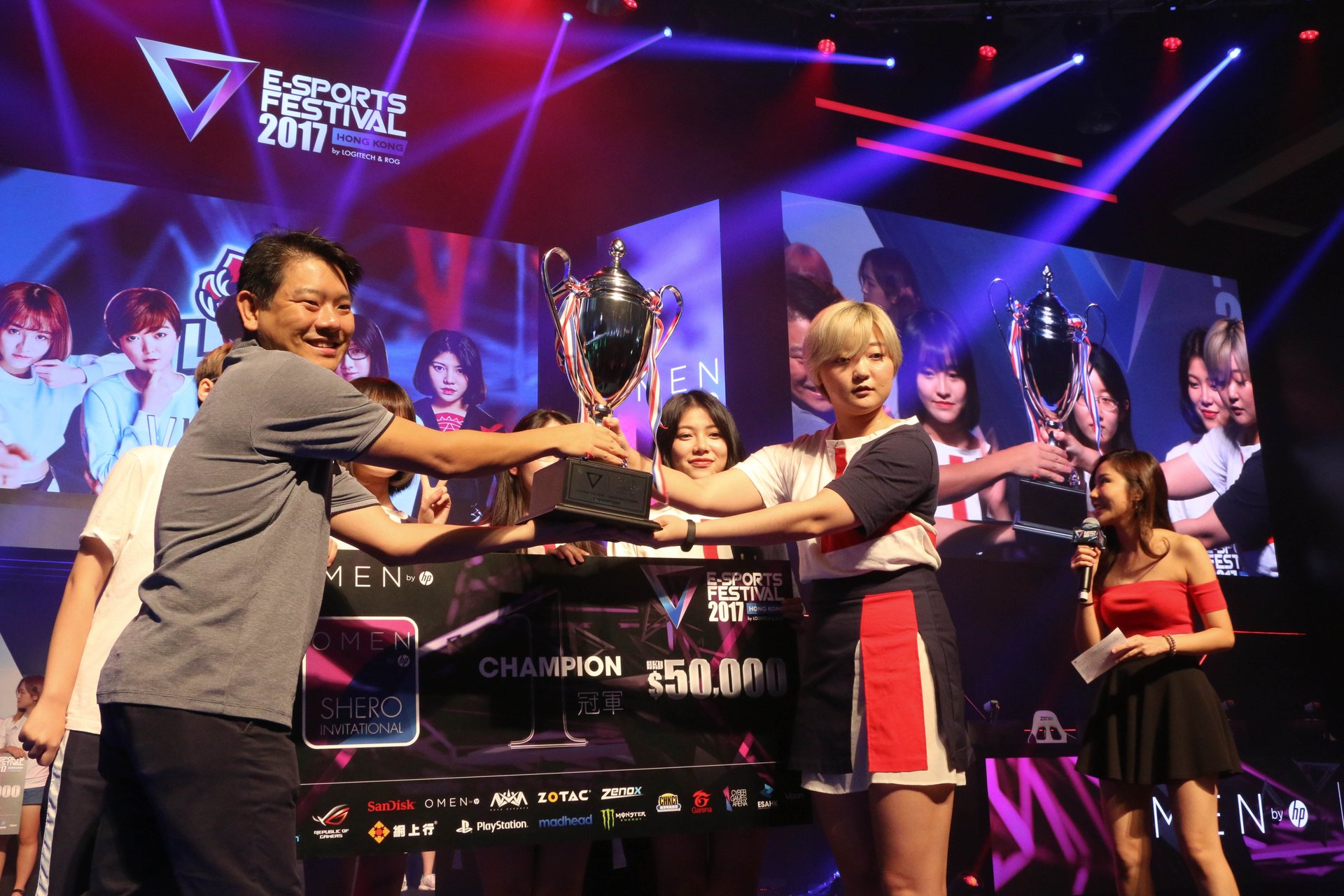
Sexism sells, sexism hurts
Some argue that all-female teams are an “extension of the ‘booth babes’ that surround competitive gaming,” the women wearing skimpy clothes who tout new gadgets at computer conventions like the one in Hong Kong where the tournament took place. In the case of China, all-female LoL teams have mushroomed alongside the boom in the country’s live-streaming platforms, which made it easier for people to watch attractive female gamers play, and send them money.
Xie Yi-shan, 22, a member of the Taiwan team at the tournament, makes a living by livestreaming her games on Twitch, a video streaming platform that is widely popular among gamers around the world. Xie gets paid every month in accordance with the number of subscribers to her channel, which is currently at nearly 70,000. She said most of her viewers pay more attention to her appearance than her gaming skills, which is why she makes sure to wear makeup when she plays. Still, she says, male viewers send her abusive messages such as “You are ugly” and “Your tits are too small.”
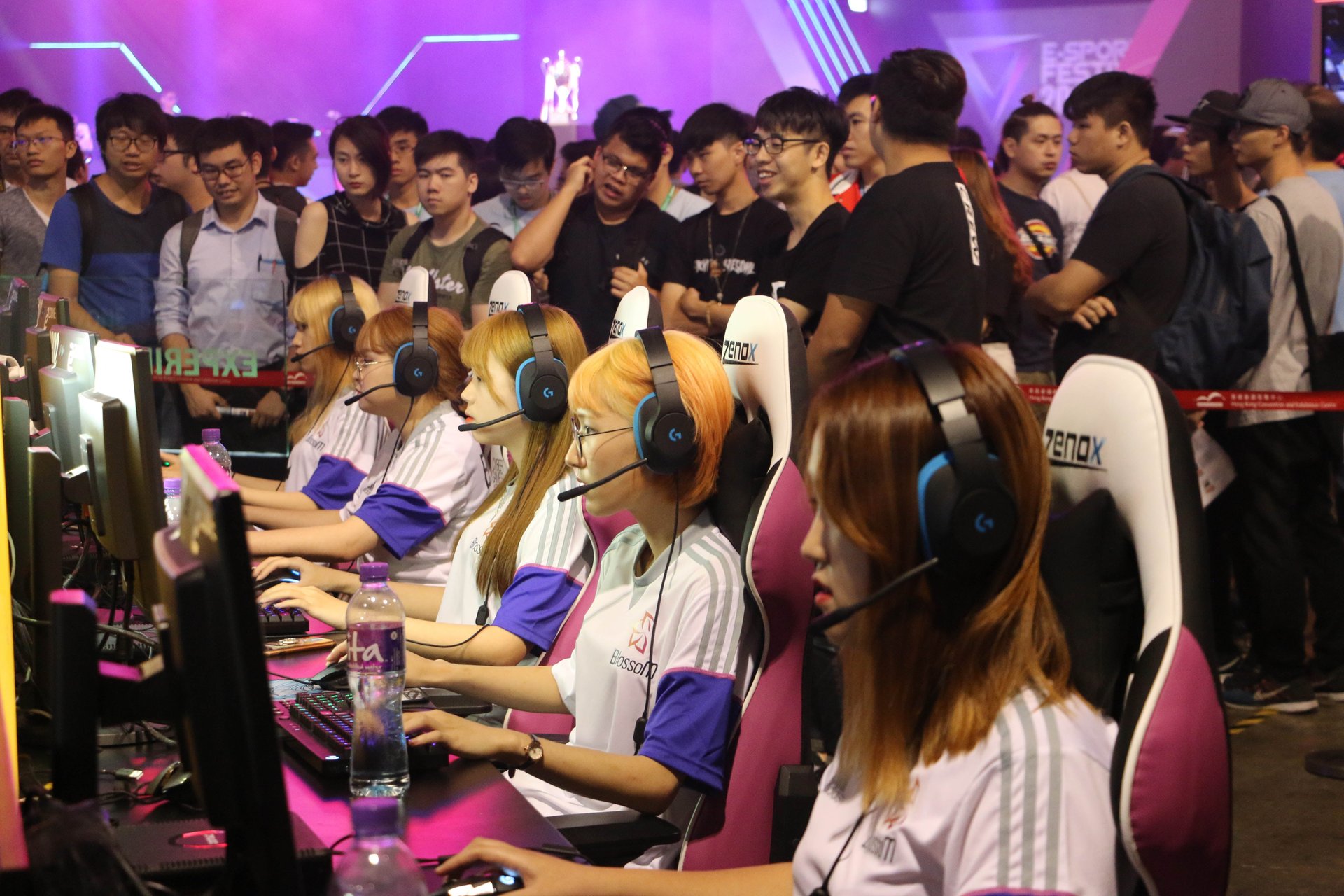
China’s e-commerce giant JD.com formed its own all-female LoL team this April, becoming a rare big-name investor in the country’s female gaming industry. In a job posting (link in Chinese) on microblogging site Weibo, JD asked female applicants to send their photos along with their CVs, and noted that players who can also sing and dance would be given preference. Now, the female gamers in JD’s team not only play tournaments but also actively show up in online entertainment shows and JD’s own promotional events.
Although streaming and attending commercial events are profitable for female gamers, LLG has decided to approach professional gaming for its female teams in much the same way as male teams do. Zhang streamed herself playing LoL games on several Chinese apps for about a month before LLG decided it was adversely affecting her and advised her to stop. The viewers “only cared if I’m funny or not, good looking or not, and sing or not,” she said.
Gui says she’s already seen a change in the respect she and her teammates are getting. Last year, she said, viewers at the tournaments LLG attended typically left after they saw female gamers taking the stage. Now, “they’ll stay for a couple of minutes, come to realize that our game plays are brilliant, and keep on watching.”
Gui’s father, who once wanted to rescue her from video games, has told her, “Since you have chosen to do this, you must do it well and not give up.”
A grueling regime
Every weekday from 1pm to 9pm, LLG members train at a practice room close to their dormitory, a 280-square-meter apartment owned by Wang, where they live rent-free with a cleaning lady and two female managers, including Li. The training is mostly made up of a minimum of 12 ranked games (which pit players with similar scores against each other) per day, as required by their contracts. At times, they have training matches against other female pro teams online. Their male coach Chen Junliang, 26, a retired pro gamer, watches over their shoulders during training.
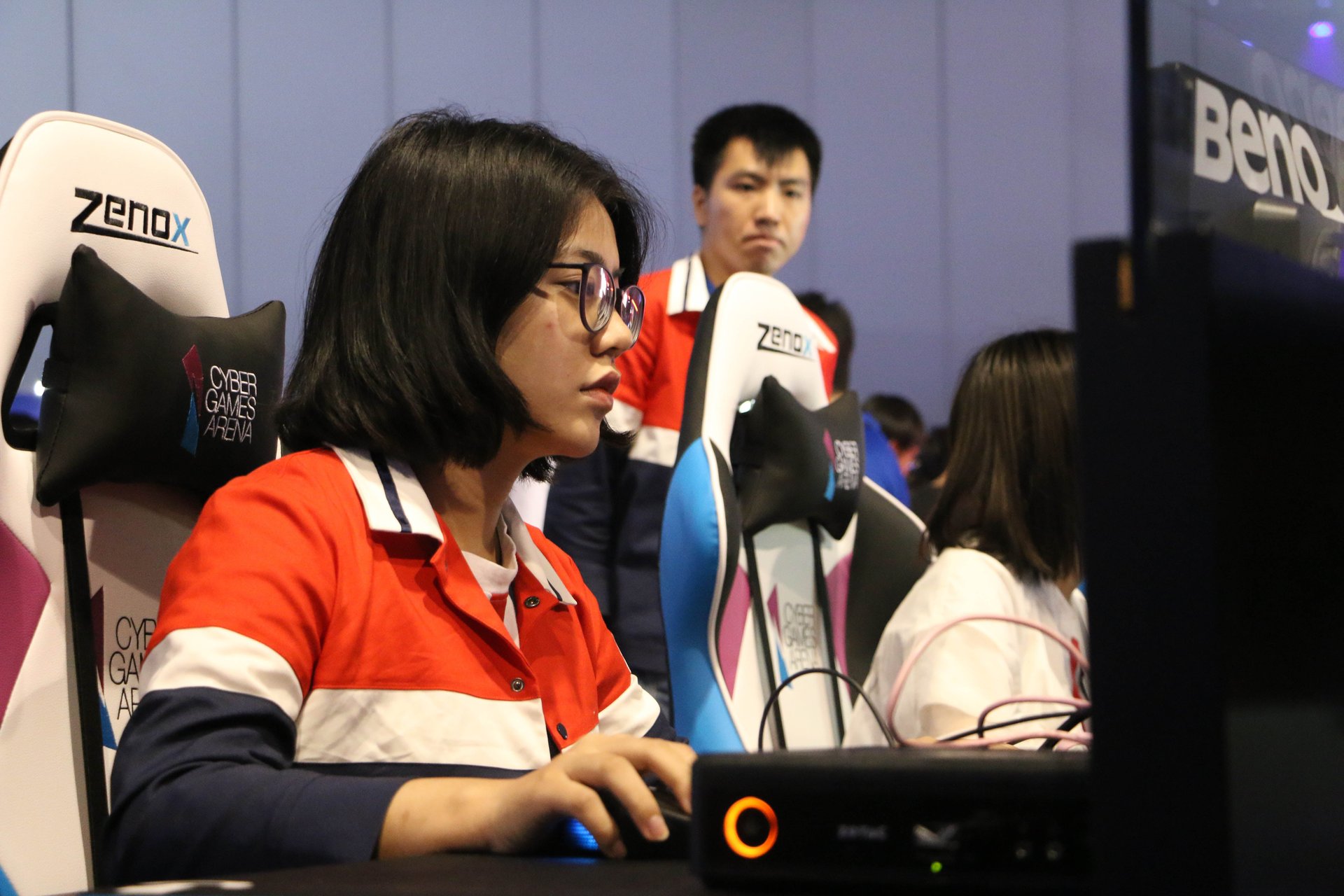
Zhang and teammate Yue Yang, who share a bedroom, often practice late into the night, far beyond the required hours. Yang said she often forgets to eat while playing and has lost nearly 10 kilos (22 pounds) in the nearly two years since she joined the team. At a height of 165cm (5.4 ft), she weighs just 41kg.
While some team managers cut off the internet to players, manager Li says LLG recommends going to sleep by a certain time but doesn’t force players to do so. Wang, the LLG investor, has written letters to warn the team members against staying up late, and asked them to sign a promise to obey. But the women keep pushing themselves hard; some, outside the pro gaming world, might call them internet addicts. LLG’s Zhang admits that one time, when she was a teenager, she played for more than 60 hours before she was too tired to continue, and then slept for a whole day. Now, she says she’s a bit better and tries to remember to take breaks. But it’s hard, she said, “I don’t have enough self control.”
“Nothing else is as fun,” she says, as battling through an arena as a graceful magician, conjuring up whirlwinds and thunderstorms to protect her teammates.